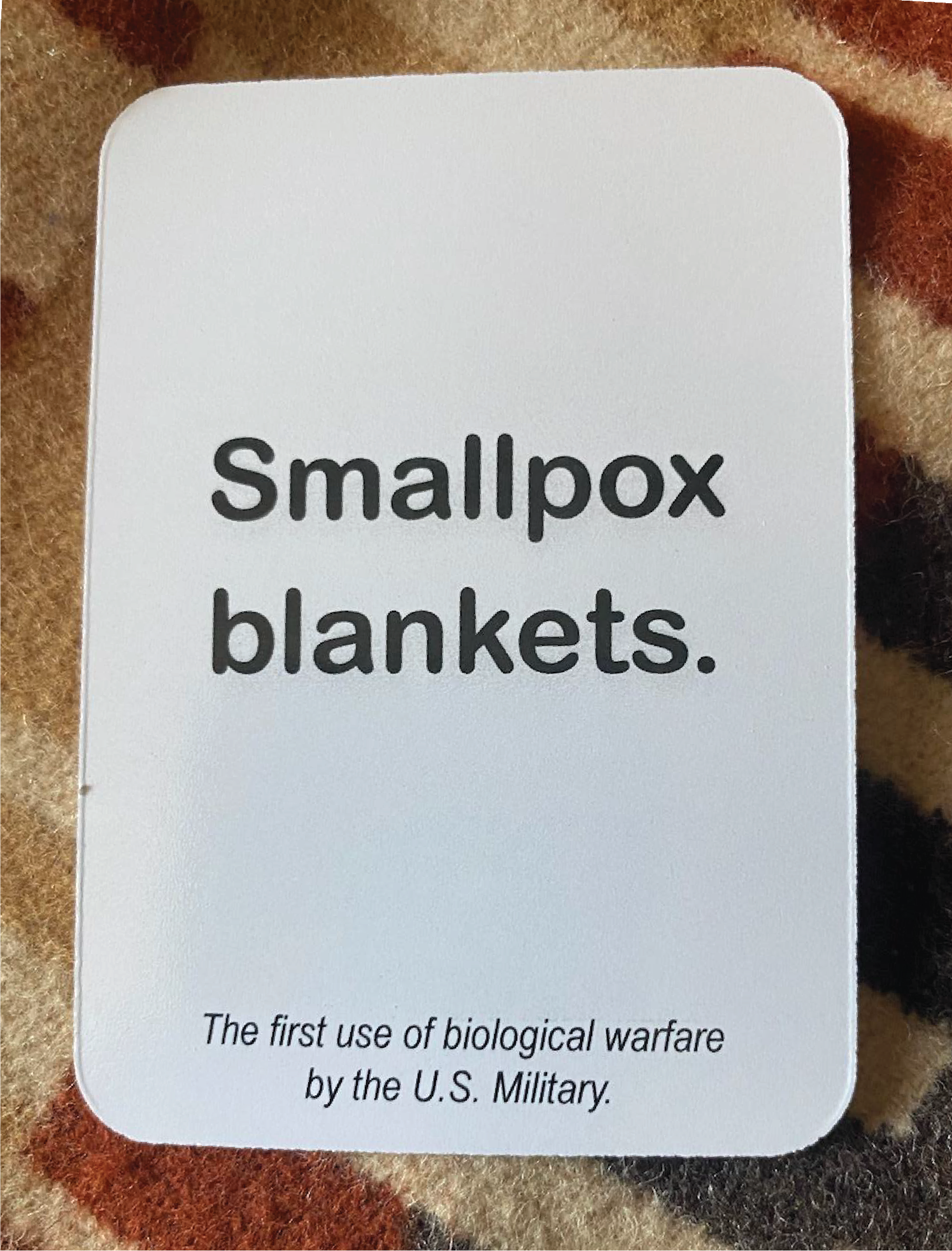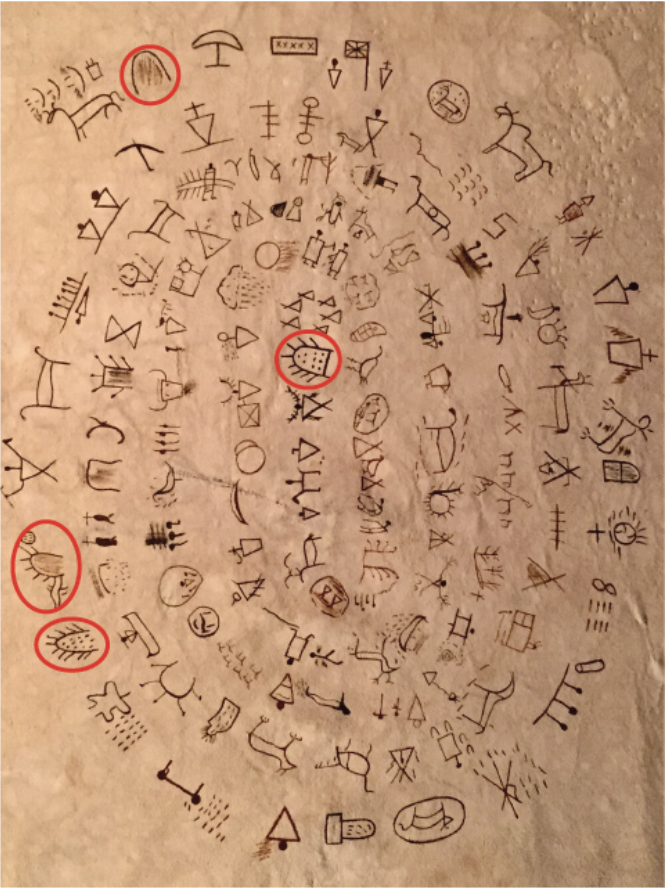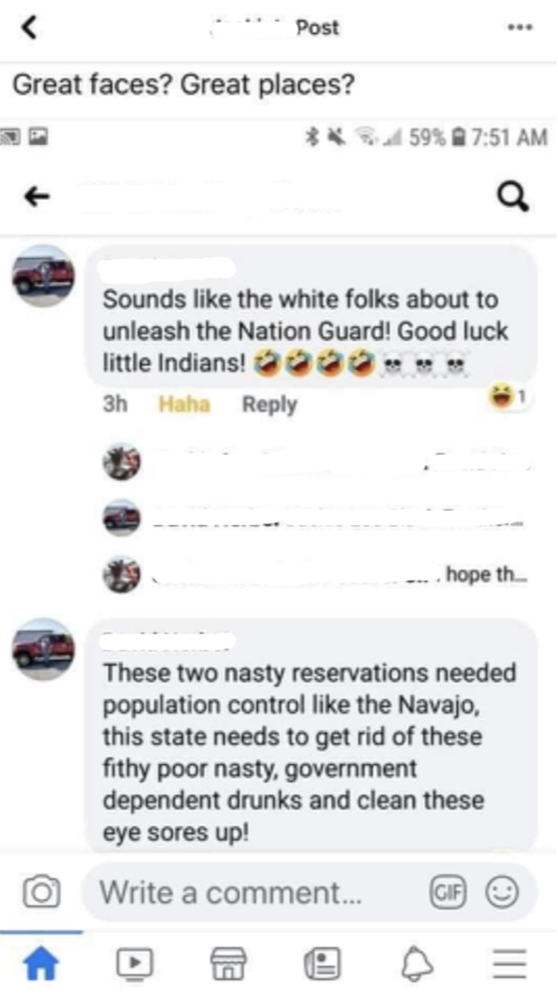10th Oct 2022
Smallpox Blankets
| On June 16th, 1763 Captain Simeon Ecuyer wrote to his superior Col. Bouquet informing him that the Lenni Lenape, Shawano, and Mingwe Tribes were laying siege to Fort Pitt during a smallpox outbreak. The message moved up the chain of command reaching Jeffery Amhurst who responded; “Could it not be contrived to send the smallpox among those disaffected tribes of Indians? We must, on this occasion, use every stratagem in our power to reduce them.”1 In further correspondence, Col. Bouquet promised to try and infect tribes with blankets from smallpox patients. Earlier that year, William Trent, a trader of Fort Pitt documented an attempt to infect tribes in his journal. He had gifted Indian emissaries with two blankets and a handkerchief from the on-site smallpox hospital. Despite the widespread belief that foreign militaries employed biological warfare to decimate Native peoples, these two examples are the only recorded cases of colonialists attempting to infect tribes with smallpox using blankets. And when I say recorded, I mean by white colonists, not by tribes. Accounts by tribes seem to be largely ignored, or their credibility called into question. Getting a “the victor writes history” vibe yet? |
|
First Nations have numerous stories about receiving or trading blankets and then experiencing a smallpox epidemic. The Hidatsa, for example, blamed Francis Chardon for their smallpox epidemic of 1837. The Chippewa have a story about receiving a keg of rum wrapped in a blanket and later experiencing an epidemic. The Inca have a documented story of their king receiving a box with nothing but scraps of paper and then contracting smallpox soon after2. I admit that tribes could assign meaning to events that happened by chance, but stories are how we document our history. While stories alone aren’t a strong case for the intentional infection of tribes by colonists, given the rocky relationship between the U.S. and tribes, and the U.S.’s struggle to acknowledge their crimes against tribes3, it is very well possible that there could be a case of historical erasure here.
Here’s the thing... To me, it feels like this debate is happening for the same reason kids lie about stealing sweets from the cookie jar. And for that reason, I don’t think this debate has any merit; because it’s a debate about guilt, not preserving accurate objective historical integrity. There’s no merit because whether Smallpox blankets happened in the way tribes believe it did isn’t the lynchpin for whether or not the U.S. is guilty of genocide.
I talked to Dr. Dave Beck, Native American Studies professor at the University of Montana, for some insight into the historical context of this era. For years before the use of smallpox blankets, militaries were already implementing starvation tactics, such as burning crops and killing the Buffalo. George Washington was stealing Indian women to force Indian men to trade land in order to get the women back safely. After the initial epidemics Native children were stolen from families and sent to boarding schools4. Solely from the perspective of guilt, it doesn’t matter whether the Smallpox epidemic was intentional, because there are events that are equally atrocious and well documented.
A Blackfoot Winter count hide with epidemics of small pox and measles circled.
| While I don’t think a debate about guilt has any merit, I also don’t want to discount how awful the epidemic was for tribes. Let’s look at some examples; Once infected, a Nakoda band requested liquor from a fort to spend their last days happy. There were reports of infected Apsaalooke men jumping off of cliffs to keep from spreading the disease, but the tribe becoming infected anyway. When a tribe became infected the people often did the unthinkable knowing they were going to die. This kind of trauma isn’t easily forgotten. Let’s return to the present day; we are experiencing a pandemic and this historical PTSD is showing. I talked to Stephen Chase, a friend of mine who is Diné, about the situation on the Navajo Reservation. At the time of writing, they are still 3rd in the country in terms of cases per capita, and given the context, it is understandable how that is the case. The Navajo reservation is 27,000 sq miles with only 13 grocery stores to meet the demand of approximately 180,000 tribal members. These stores have raised their prices, taking advantage of the panic, this is in addition to the 10 customer limit and reduced operating hours. Many poorer families are being forced to drive an hour and a half to a border town to buy groceries, thereby causing those families to potentially expose themselves to the virus just to be able to eat. Stephen said, “It’s like history is repeating itself.” Some tribes have been luckier, with things like running water, and easy access to electricity helping to mitigate infection rates. Many Plains tribes also quickly closed borders, implemented curfew, and set up checkpoints. “Not again,” many of us thought, remembering horror stories of smallpox and whooping cough from our elders. What’s truly interesting is the response to tribes who have done all they can to mitigate damage from the pandemic. I’ll let the following social media post speak for itself. While at first glance this not-so-uncommon sort of post triggers visceral anger, it’s important to take pause and look a little deeper. This post was in response to news about the Cheyenne River Sioux reservation refusing to take down checkpoints. What I think this post really highlights is a clash between collectivist and individualist cultures. Tribes are operating from the paradigm that the people, collectively, come first, even at the expense of individual rights. The person above is operating from the paradigm of individualism; that the freedoms and rights of society don’t supersede individual rights. To him, all that matters is that the tribes are taking away his right to use a highway his tax dollars paid for. We need to consider responsibility when looking at this post as well. What most people who think similarly to this man often fail to acknowledge is that rights come with responsibilities. Responsibilities like following the law, paying taxes, and not compromising the wellbeing of your neighbor. Responsibilities are typically emphasized more within collectivist cultures. We do things such as, open grocery stores specifically to compete with corporations’ price gouging and pay Per Capita out to our tribal members. For us, it is a responsibility to ensure the wellbeing of our tribe, in its entirety. To many, it feels like history truly is repeating. Tribes fought for their land against the U.S. Military, even while suffering from smallpox. And now, once again, we are defending ourselves against a pandemic and dealing with calls for potential U.S. military involvement because some non-Natives don’t have unfettered access to our land. I’m angry, and you should be too, but I think this anger can be a force for good. Instead of feeding the trolls on Facebook, pour your energy into doing as we have always done. Taking care of our people, our whole collective American people. You can do it now, call an elder who lives alone to check on how they’re doing, gift a roll of toilet paper from your horde to somebody in need, and for fuck’s sake, wear a mask. -Naatosi Fish 1. Patrick Kieger, Did Colonists Give Infected Blankets to Native Americans as Biological Warfare?, (History.com, 2019) 2. Mayor, Adrienne. "The Nessus Shirt in the New World: Smallpox Blankets in History and Legend." The Journal of American Folklore 108, no. 427 (1995): 54-77. Accessed July 23, 2020. doi:10.2307/541734. 3. Claire Bugos, The Myths of the Thanksgiving Story and the Lasting Damage They Imbue, (Smithsonian Magazine, 2019) 4. Calloway, Colin G. The Indian World of George Washington: The First President, the First Americans, and the Birth of the Nation. New-York, NY: Oxford University Press, 2019. 5. Wahleah Johns. A life on and off the Navajo Reservation. New York, NY: New York Press, 2020. |



